Damiana
Leaf
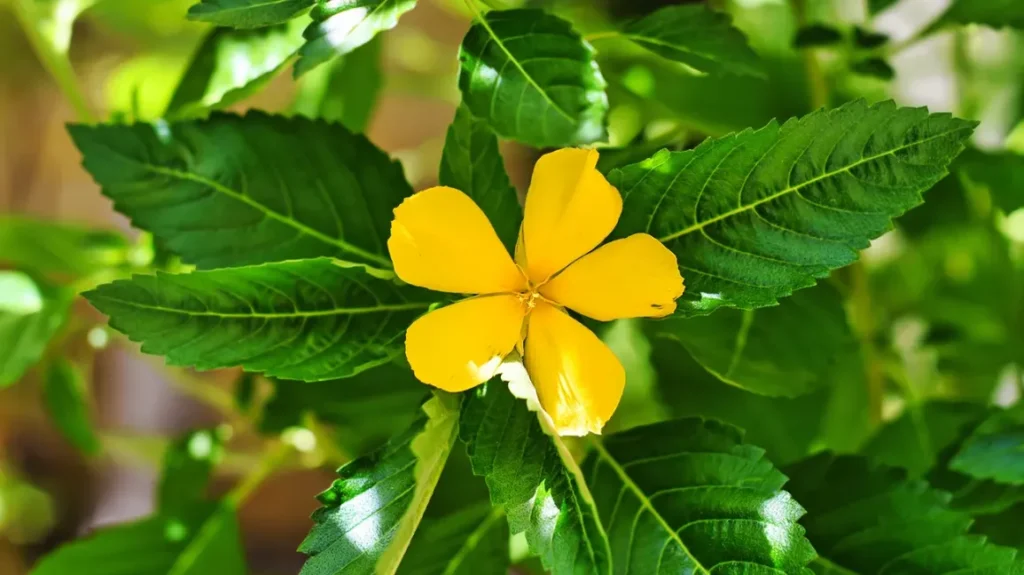
Damiana Leaf is an aromatic herb known for its use in traditional medicine, particularly in Central and South America. It is valued for its aphrodisiac properties, mood-enhancing effects, and ability to support overall well-being. The herb is often used in teas, tinctures, and herbal blends.
1. Size:
- Damiana leaves are small to medium-sized, typically ranging from 1 to 3 inches in length.
- The leaves are narrow and oval-shaped, with a slightly serrated edge.
2. Color:
- The leaves are green to yellow-green, with a slightly glossy surface.
3. Texture:
- Damiana leaves are smooth and somewhat leathery to the touch.
- The leaves are thin but sturdy, with a slightly rough underside due to fine hairs.
4. Fragrance:
- Damiana has a strong, sweet, and slightly spicy aroma, with notes of mint and earthiness. The fragrance is distinctive and pleasant.
5. Uses:
- Damiana is traditionally used as a natural aphrodisiac, believed to enhance libido and sexual performance. It is often included in herbal blends for this purpose.
- The herb is known for its mood-lifting properties, helping to reduce feelings of anxiety, depression, and stress.
- Damiana is also used to support digestive health, particularly in relieving constipation and promoting regular bowel movements.
- The herb is believed to provide a mild stimulating effect, increasing energy levels and reducing fatigue.
6. Habitat:
- Damiana is native to Central and South America, particularly Mexico and the Caribbean. It grows in arid, rocky soils and is often found in dry, sunny environments.
7. Cultural Significance:
- Damiana has been used in traditional Mexican and Central American medicine for centuries. It is considered a sacred herb in some indigenous cultures, valued for its healing properties and spiritual significance.
- The herb has a long history of use in rituals and ceremonies, particularly those focused on love, passion, and emotional healing.
Spiritual Properties
- Love and Passion: Damiana is often used in spiritual practices and rituals to enhance love, passion, and intimacy. It is believed to help open the heart and strengthen emotional connections.
- Emotional Balance: The herb is thought to promote emotional balance and well-being, helping to clear negative energies and support a positive outlook.
- Mental Clarity: Damiana is sometimes used in rituals to enhance mental clarity and focus, aiding in meditation and spiritual work.
Medicinal Properties
- Aphrodisiac: Damiana is well-known for its aphrodisiac effects, traditionally used to enhance sexual desire and treat sexual dysfunction. It is often recommended for both men and women.
- Mood Support: The herb is used to alleviate symptoms of anxiety, depression, and nervousness. Its calming yet uplifting effects make it a popular choice for those seeking natural mood support.
- Digestive Health: Damiana has mild laxative properties and is used to relieve constipation and promote digestive regularity. It is also believed to soothe the stomach and intestines.
- Nervous System Support: The herb is considered a tonic for the nervous system, helping to reduce stress, improve sleep, and support overall nervous system health.
Adverse Actions & Side Effects
- Interaction with Medications: Damiana may interact with certain medications, particularly those affecting blood sugar or blood pressure. It is important to consult with a healthcare provider before using it alongside medications.
- Hormonal Effects: Due to its potential effects on hormone levels, Damiana should be used with caution by individuals with hormone-sensitive conditions.
Side Effects:
- Insomnia: In some individuals, Damiana may cause mild insomnia or restlessness, especially when consumed in large amounts or close to bedtime.
- Headaches: Some users may experience headaches or lightheadedness, particularly if they are sensitive to the herb’s stimulating effects.
- Nausea: High doses of Damiana can sometimes cause nausea or gastrointestinal discomfort.

Lemon Balm & Honey Healing Cookies
Lemon Balm and Honey Healing Cookies These light and flavorful cookies offer a perfect way to relax and soothe the spirit while enjoying a delicious
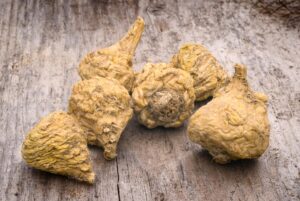
Maca Root
Maca Root Maca Root is a plant native to the Andes Mountains in Peru, known for its tuberous root that has been used for centuries
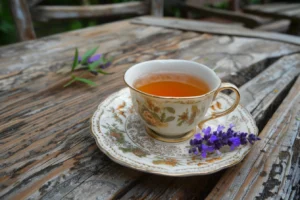
Chamomile & Lavender Calming Tea
Chamomile & Lavender Calming Tea A soothing blend designed to promote deep relaxation and emotional healing, making it an ideal remedy to unwind after a
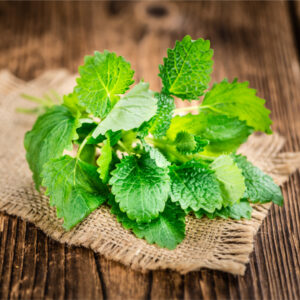
Lemon Balm
Lemon Balm Lemon Balm is a perennial herb in the mint family, known for its lemon-scented leaves and small, delicate flowers. It has been used
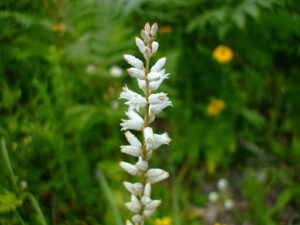
True Unicorn Root
True Unicorn Root The overall appearance of hibiscus flowers is bold and exotic, making them a popular choice for gardens, decorations, and floral arrangements. Their
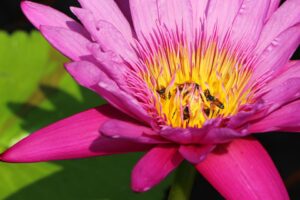
Lotus Stamens
Lotus Stamens Lotus Stamens are the reproductive parts of the lotus flower, known for their delicate structure and unique properties. The lotus is a symbol